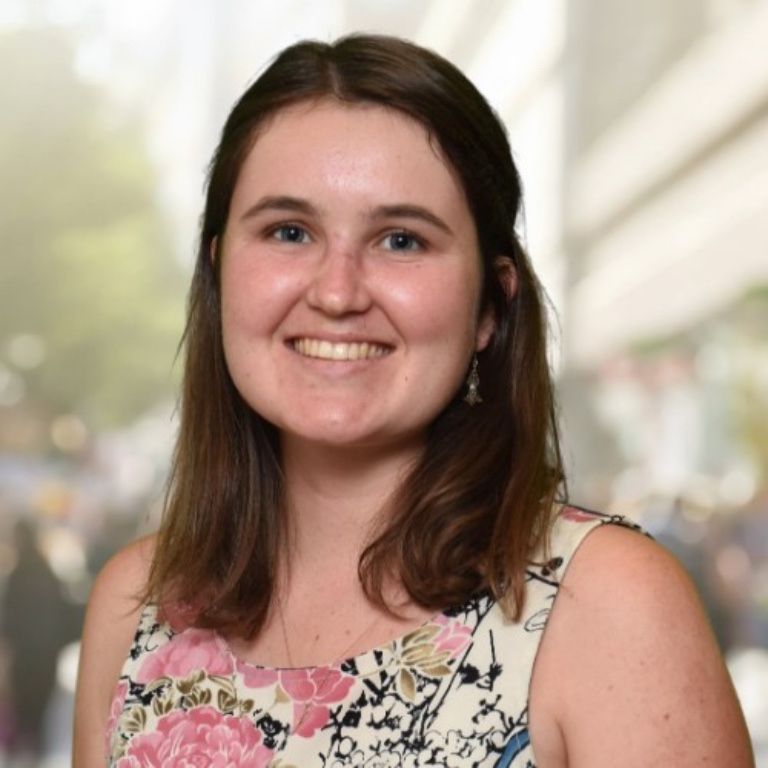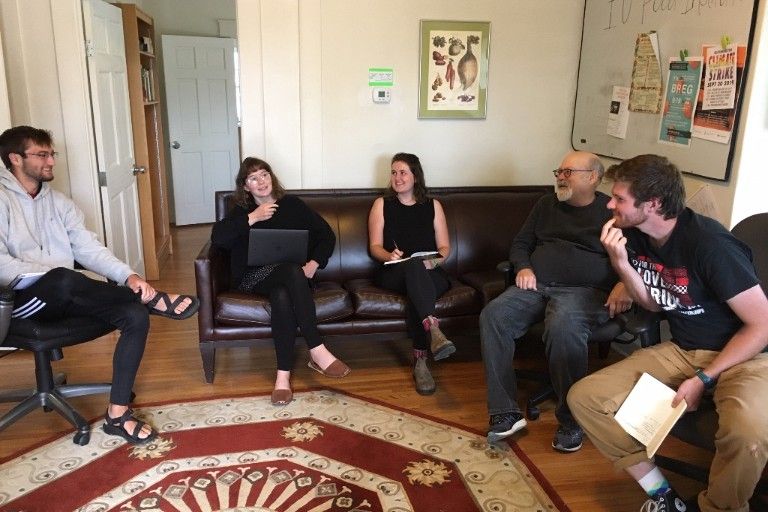Senior Emma Freestone found herself joining the Critical Food Studies Lab on campus after hearing one of her classmates talk about the positive impact interning at the lab was for her.
Since 2018, Freestone has interned at the Critical Food Studies Lab, receiving two credit hours for her time. Then, she spent her summer volunteering and continuing research with lab’s director, professor Dan Knudsen and lab co-director Angela Babb.
Freestone is receiving her bachelor's in Geography with a concentration in GIS and Environmental and Sustainability Studies, with a concentration in Sustainable Food systems. She is expected to graduate in 2020.
Now, Freestone attends the lab’s weekly meeting and is working to finish her senior thesis that focuses on how enacting a national living wage policy will impact low-income families who are experiencing the cliff effect, a term used to describe one barrier to get out of poverty. It happens when a family loses eligibility for subsidized housing, food, child-care or other benefits due to an increase in income.
“I like how [this research] brings together a unique group of students interested in critical analysis of poverty, geography of food, resource distribution, farming systems, etc,” Freestone said. “It is a great place to discuss how to approach research in this field, learn to use Geographic Information Systems for geospatial analysis, and share resources of relevant literature.”
Founded in 2017, the Critical Food Studies Lab is a joint initiative between the IU Food Institute and IU Department of Geography. Students use data, mathematical modeling, and visual techniques to examine food security, food sovereignty and food justice in the United States, specifically in Bloomington.
The Critical Food Studies Lab employs several project directors and a group of research interns working on making data available to understand decision-making and ethnographic approaches regarding the food system.
“Most seniors work with us on figuring out their research proposal and narrowing down the methods to help answer their questions,” Babb said.
Currently, students have developed a model to show how effective or ineffective food stamps are. The Thrifty Food Plan, which hopes to propose changes to the food stamp system, stems from the existing USDA Designed plan.
Freestone has gained significant hands-on experience working with the lab. Through practice with human geography research, students can gain experience in interviewing, surveying, writing and even editing academic papers.
“It is also really good experience to learn how to work on the level of a team because we are often assigned projects to work together on,” Freestone said. “I have found that it has helped me to focus on collaboration rather than competition with my peers and a lot more work gets done this way.”
Students are encouraged to volunteer, receive course credit, or apply to be interns for the program. Babb encourages students to be part of the conversation happening between students and the community.
“If the energy is there, they are welcome to be part,” Babb said.
Students can also help out on a selection of ongoing research projects if they aren’t sure what they’d be interested in working on. These projects can lead to publication in an academic journal. The Critical Food Studies Lab also has a blog where students can tell their personal experience working on these projects.
Though her internship is over, Freestone is still completing coursework and thesis through the lab.
“One of my favorite memories from working in the lab was the interviews I got to conduct with Belen Rogers at Monroe County United Ministries,” Freestone said. “It was so eye-opening to hear from Bloomington residents about their experience using the food pantry and self-sufficiency center, how and where they access food from week to week, and what foods they thought were lacking in the food pantry, among other parts of their stories that they chose to share with us.”
Students who participate in engaged learning activities, such as service-learning, study abroad, undergraduate research, and internships, report beneficial outcomes in deeper learning skills, increased interactions with faculty and are exposed to opportunities to apply classroom learning to real-life settings.
The Office of Engaged Learning connects students with many opportunities to do research, including with the Critical Food Studies Lab. For students interested in getting hands-on experience, visit The Office of Engaged Learning website: https://engagedlearning.indiana.edu
To learn more about the Critical Food Studies Lab students can visit: https://cfslab.weebly.com



